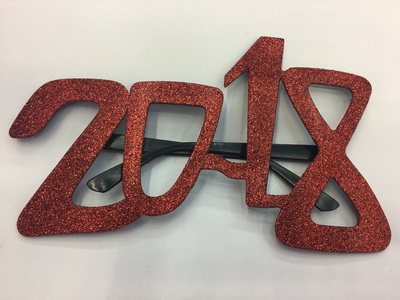雅思课外读物--Can a robot replace us?
- 2016年04月03日16:30 来源:互联网
- 参与(1) 阅读(7816)
今天给大家带来的是一篇关于“机器人”的雅思阅读文章“Can a robot replace us?”本文选自2015年9月22日BBC的内容。机器人可以帮我们做很多事情,但机器人能取代我们吗?比如,在公司董事会上,机器人能替代我们来做公司战略吗?恐怕在这儿,机器人永远只能帮助我们,而不能取代我们。
Robots. They can already clean our floors, build our cars, review legal documents, check us in at hotels and serve us drinks, but will we see them sitting around the boardroom table in place of people? Are my fellow board directors about to be made obsolete, replaced by robots overseeing companies? Will the discussion of diversity around the board table begin to include talk of non-humans?
It might sound farfetched, but 45% of 800 executives surveyed by the World Economic Forum’s Global Agenda Council on the Future of Software and Society said they expected an artificial intelligence machine will sit on a company’s board of directors by the year 2025.
This isn't the first time this has come up. Last year an investment group drummedup(招徕) headlines by announcing that it had appointed an AI to its board of directors. The firm said it would analyse data to help them make decisions about biotech investments. But, since that isn’t the full extent of the role of a genuine board member, the algorithm clearly was not really going to function as a full voting member of the firm’s board.
So do we need to set a place for robots at the boardroom table? There are a couple of reasons why I’m in the 55% who don't believe that are our jobs are at risk, or at least not from robots.
I believe data in the boardroom is growing in importance. Data can help us make decisions of all kinds. When developing strategy, it informs our thinking on marketplace trends, on what people are buying, selling, saying and doing.
On the remunerations and compensation committee, we use data to see what people are earning in the company and in the industry more broadly, and to examine overall compensation trends. In the audit committee, and also when doing any sort of financial analysis, we use data to see where spending and saving is and isn’t happening. And risk committees use data to analyse the myriad factors associated with risk of any kind, be it financial, infrastructure, strategy, legal and more.
In fact, there are few, if any areas, where we don't depend on data in some shape or form.
But it’s how we use the data to inform our decisions that differentiates us from the robots.We weigh the information to make decisions that are specific to the company, its employees and its competitiveness. It is the data mixed with creativity and intuitive, non-linear thinking that makes a company successful.
Indeed, if everyone is using the same sort of data and simply making automatic, calculated decisions from it, then differentiation is lost. The competitive advantage,in many ways, comes from the ingenuity and creativity of people.
I've often said that the boardroom is the most “human” place I've ever been. People come with their own knowledge, feelings, emotions and agendas. And, yes, that can colour the conversation on the day and sometimes hinder efficiency or easy decision making. But there is also a healthy friction that comes into play as well, which results in more robust results.
It is true that humans are fallible, and board directors are no exception. For example, pay packets(工资待遇) for CEOs can be too high, perhaps because they’ve been driven by human greed or judgement of real value. But would it be any different with a robot on the board? They would analyse the pay of other CEOs, and come up with calculations, just as is done now. But would they be able to bring about change to the compensation structure? Would they force a right sizing or apply a moral or ethical dimension to whether the compensation was correct? I think it would still take a human, or at least a human programming it, to calculate that.
Another important part to the human boardroom is the ability to judge people. Not what is on paper, but rather the people who are actually in front of you. Anyone can come up with an idea and even present it well. But as any investor, and particularly venture capitalists, will tell you, quantitative calculations can only take you so far when judging whether the idea is likely to be a success. Bringing those ideas to fruition, be it a new venture or a new direction for a company, requires the right people to execute on it. Judging whether things are going well or poorly, whether a strategy will work or not comes down to the ability to size someone up. The board must decide they are going to trust a CEO or an executive, and that has a lot to do with whether they are credible leaders.That can't be a judgement solely based on numbers.
Some of the fallibility in boardrooms comes from the fact that as a diverse group of board members we are,individually, often called to make decisions on matters where we don’t have expertise. In those cases, we depend on data and analysis and good briefings to help us to make those decisions, but that is still not a substitute for good judgement.
Also, data is not necessarily completely objective, nor is it always correct. Polling has proven recently that the data we have is only as good as the questions asked, and the veracity of the answers given.












































